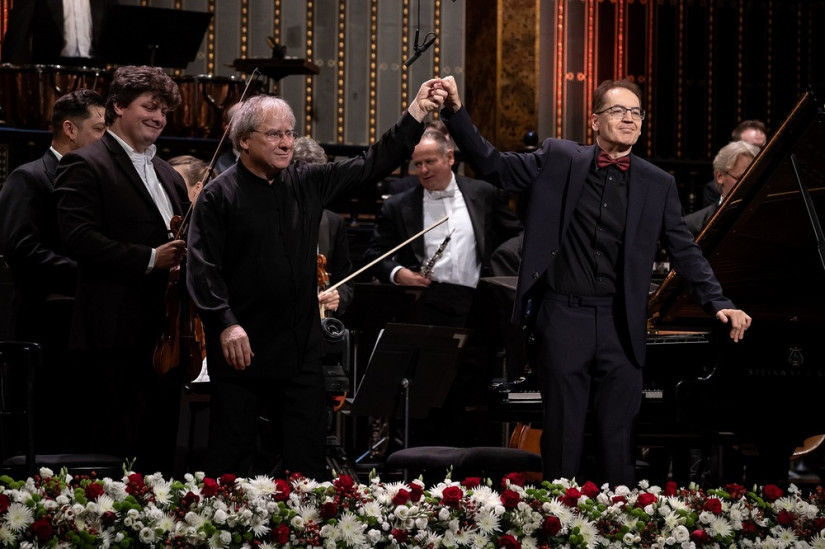
1 April 2023, 19.30-22.00
Grand Hall
Bartók Spring International Arts Weeks
Dénes Várjon & Concerto Budapest • 2.1
Bartók: Rhapsody for Piano and Orchestra, BB 36b [Op. 1]
Bartók: Scherzo for Piano and Orchestra, BB 35 [Op. 2]
J. S. Bach: Brandenburg Concerto No. 3 in G major, BWV 1048
Beethoven: Symphony No. 7 in A major, Op. 92
Dénes Várjon (piano)
Concerto Budapest
Conductor: András Keller
There can be little doubt that Bartók’s music is particularly close to the worlds of Bach and Beethoven. The works of these two composers throw into relief the powerful roots of Bartók’s music with which it clings to music history, while their proximity also reveals its newness. The inspiration of nature will also play a prominent role at the concert of Dénes Várjon, András Keller and the Concerto Budapest, which will be closed with the Pastorale Symphony, one of Beethoven’s most unique and in some ways most daring compositions: it pulsates with the natural power of village dances, as do the fast movements of Piano Concerto No. 1, which stem from the Baroque and throb evenly.
Presented by
Müpa, Liszt Academy Concert Centre
Tickets:
HUF 2 900-7 500


